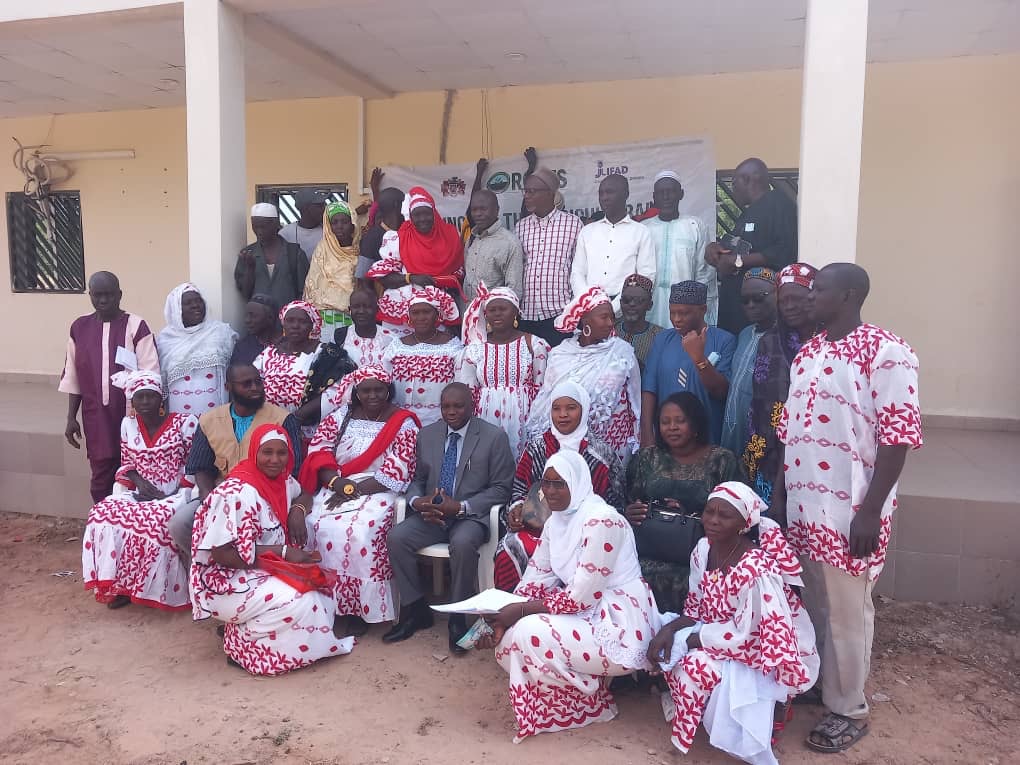This page is proudly Patron by Confederation of Gambian Industries (GCI)
By Fatou Krubally
The President of the Confederation of Gambian Industries (CGI) said the Gambia’s 60th independence anniversary offers a moment for reflection on where Gambians have come from, the challenges they have overcome, and the “bright future” that lies ahead for the manufacturing sector.
Our Business and Finance reporter, Fatou Krubally, sat down with Farimang Saho, President of Confederation of Gambian Industries (CGI), and they discussed the name change, challenges, and the future of the Gambia’s manufacturing sector.
Read on:
Fatou Krubally: What is behind the name change from Association of Gambian Manufacturers (AGM) to Confederation of Gambian Industries (CGI) CGI?
Farimang Saho: The transition from AGM to CGI represents a new vision—one that is more dynamic, inclusive, and aligned with the evolving needs of Gambian manufacturers. CGI is dedicated to fostering industrial growth, advocating for policy reforms, and driving economic development. The new name signifies our broader mission to strengthen local industries and position The Gambia as a hub for manufacturing excellence.
Fatou Krubally: What are some of the key challenges and achievements in the country’s manufacturing industry?
Farimang Saho: Over the years, the manufacturing industry has faced hurdles such as limited infrastructure, high production costs, and access to finance. However, we have also seen remarkable achievements, including increased local production, value addition to raw materials, and the growth of small and medium-sized enterprises (SMEs). The sector has become more resilient, creating jobs and contributing to economic stability.
Fatou Krubally: Tell us about the evolution of the manufacturing sector since independence.
Farimang Saho: Since 1965, Gambian manufacturing has shifted from basic production to a more diversified sector. We have seen improvements in agro-processing, textiles, drinking water, beverages, and construction materials. The introduction of new technologies and industrial policies has facilitated steady progress, although challenges remain in scaling up operations and competing internationally.
Fatou Krubally: What is the CGI’s role and plans?
Farimang Saho: CGI has been instrumental in supporting local manufacturers by providing advocacy, capacity-building programs, and access to regional and international markets (e.g., helping members to acquire ETLS certificate, helping members to participate in regional trade fairs, strategic partnering by signing MoU with key institutions or sister organizations. Looking ahead, we aim to enhance industrial infrastructure, foster partnerships, increase membership, participate more in regional trade fairs, and create policies that support sustainable manufacturing growth.

Fatou Krubally: What are the major obstacles and proposed solutions?
Farimang Saho: Some of the key challenges include: Access to financing: We advocate for low-interest and long-term credit facilities for manufacturers.
- High energy costs: Partnering with the government to explore renewable energy alternatives.
- Limited skilled labor: Promoting vocational training and technical education (e.g., TVET) to build a skilled workforce.
- Market competition: Encouraging “Made in the Gambia” branding and supporting local industries through procurement policies (e.g., Passing the Local Content Bill).
Fatou Krubally:: What is the level of CGI’s collaboration with the government and stakeholders?
Farimang Saho: CGI works closely with the government, private sector, and development partners to improve the business environment for manufacturers. We engage in policy dialogue, investment promotion, and public-private partnerships to create an enabling ecosystem for industrial growth.
Fatou Krubally: What is the impact of technology and innovation at the level of CGI?
Farimang Saho: Technology has transformed manufacturing in The Gambia, enhancing efficiency, reducing costs, and opening new market opportunities. Automation, digital marketing, and e-commerce have allowed businesses to scale beyond borders. Embracing innovation is key to future success.
Fatou Krubally: How does the CGI encourage young entrepreneurs and startups?
Farimang Saho: We must inspire the next generation to see manufacturing as a viable career path. This requires access to startup capital for young entrepreneurs, mentorship programs connecting established manufacturers with aspiring industrialists, investment in technical training to equip youth with practical skills, launch startup grants incubators (e.g., focus on circular economy models) and integrate entrepreneurship into education and, highlight success stories and simplify licensing processes for young innovators.
Fatou Krubally: What are the CGI’s policies and reforms towards boosting local production and exports?
Farimang Saho: To strengthen our manufacturing base, we advocate for incentives for local production through tax breaks and grants, export-driven policies that enhance market access, infrastructure development to support industrial zones, encourage quality standards to compete regionally and free import duty on raw materials.
Fatou Krubally: Any message for Gambians on the occasion of the Gambia’s diamond jubilee?
Farimang Saho: As we mark this historic milestone, we must reaffirm our commitment to national development through industrialization. Manufacturing is the backbone of economic prosperity, and together, we can build a thriving sector that creates jobs, fosters innovation, and drives The Gambia forward. The future of manufacturing hinges on innovation, youth, and collaboration. CGI is committed to driving an industrial RENAISSANCE – rooted in sustainability. Let us embrace local production, support Gambian businesses, and work collectively towards future generations of economic independence and industrial strength.
Happy 60th Independence Anniversary to The Gambia!





